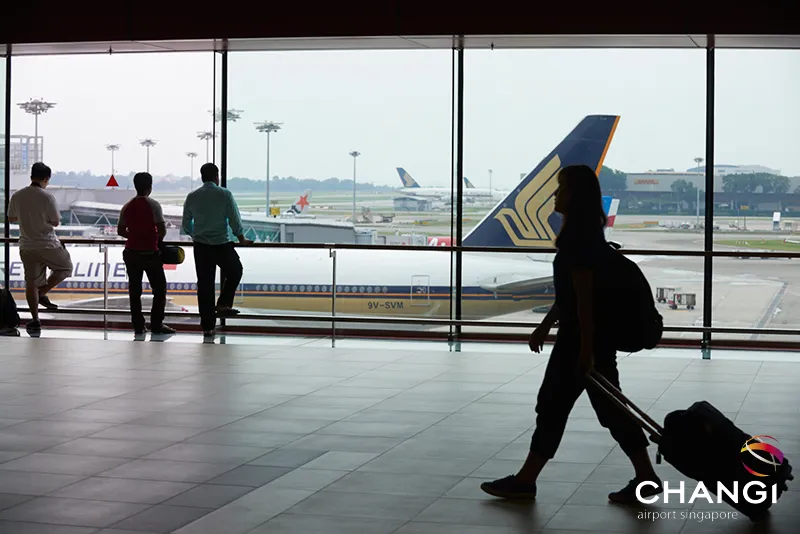
Fares yet to reflect higher oil prices
Oct 18, 2018

Airline fares have not yet fully adjusted to the recent surge in oil prices, which has raised concerns among industry analysts. While fuel costs have a direct impact on operational expenses, many carriers are currently absorbing these costs rather than passing them on to consumers. This delay in fare adjustments may be a strategic decision to maintain competitiveness in a challenging market. However, as fuel prices continue to climb, airlines may soon have no choice but to raise ticket prices, potentially leading to increased costs for travelers in the near future.
As the world continues to grapple with fluctuating oil prices, it's essential to understand how these changes impact various sectors, particularly the transportation industry. Recently, analysts have pointed out that "fares" have yet to reflect the increased costs associated with higher oil prices. This situation raises questions about the sustainability of current pricing models and the potential adjustments that may follow.
Understanding the Connection Between Oil Prices and Fares
The relationship between oil prices and fares is straightforward. As oil prices rise, so do the operational costs for airlines, shipping companies, and other transportation entities. These companies often face increased fuel costs, which can significantly impact their profit margins. However, fare adjustments do not always occur immediately, leading to a temporary disconnect between oil prices and ticket prices.
This delay in fare adjustment can be attributed to several factors, including competitive pricing strategies, consumer demand, and existing contractual agreements. Transportation companies may be hesitant to raise fares for fear of losing customers to competitors who have not yet adjusted their prices. This can create a scenario where fares remain low even as operational costs soar.
Current Trends in Oil Prices
To better understand the implications of rising oil prices, let's take a look at the current trends. The following chart illustrates the recent fluctuations in oil prices over the past year:
| Month | Oil Price (USD per barrel) | Percentage Increase |
|---|---|---|
| January | 55 | - |
| February | 60 | 9.09% |
| March | 65 | 8.33% |
| April | 70 | 7.69% |
| May | 75 | 7.14% |
| June | 80 | 6.67% |
| July | 85 | 6.25% |
| August | 90 | 5.88% |
| September | 95 | 5.56% |
| October | 100 | 5.26% |
This chart highlights a consistent upward trend in oil prices, which could soon necessitate fare adjustments across the transportation sector. As companies face mounting pressures from increased fuel costs, they may have no choice but to pass these expenses onto consumers.
The Impact on Consumers
For consumers, the implications of higher fares can be significant. As transportation costs increase, individuals may find themselves spending more on travel, which can affect their overall budget. This situation could lead to a decrease in travel frequency, as consumers become more selective about their transportation choices.
Moreover, the ripple effects of rising fares could extend beyond individual consumers. Businesses relying on transportation for logistics and supply chain management may also feel the pinch. Higher transportation costs can lead to increased prices for goods and services, ultimately affecting the broader economy.
The Future of Fares in Relation to Oil Prices
Looking ahead, transportation companies will need to carefully navigate the challenging landscape of rising oil prices. Many industry experts believe that we will see fare adjustments in the coming months as companies reevaluate their pricing strategies to align with operational costs.
Additionally, companies may explore alternative strategies to mitigate the impact of rising fuel costs. This could include investing in more fuel-efficient technologies, exploring sustainable fuel sources, or optimizing routes to reduce fuel consumption. By taking proactive measures, transportation companies can better position themselves to handle fluctuations in oil prices without significant fare hikes.
Conclusion
In conclusion, the disconnect between fares and rising oil prices is a pressing issue that warrants attention. As oil prices continue to soar, consumers and businesses alike should prepare for potential fare increases in the near future. Understanding this relationship is crucial for making informed decisions about travel and transportation. The transportation industry must adapt to these changing dynamics to ensure sustainability and affordability for all stakeholders involved.
Related Articles

Explore Thailand: The Best Islands to Visit for Paradise, Adventure, and Relaxation

The Ultimate Guide to the Best Islands in Thailand for Your Next Getaway

Do babies need passports? How to get a passport for a newborn

How to get a U.S. passport fast: here’s how to expedite the process

What is Mobile Passport Control: 5 reasons why you should use it

SENTRI vs. Global Entry: A detailed guide

Do you need a passport to go to the Bahamas? Let’s find out

Do you need a passport to go to Mexico? A detailed guide

Do you need a passport to go to Canada? We got the answer

Do You Need a Passport for a Cruise: An Essential Travel Guide

Booster Seat Requirements: All the Rules to Follow in Your Rental Car

What Are the World’s Most Powerful Passports, and How Does Yours Rank?

How to Take a Passport Photo at Home: A Helpful Guide

You've got to have heart! Southwest's new livery

Your opinion: Should water be free on low cost carriers?

Young women bolder than guys as solo travellers
